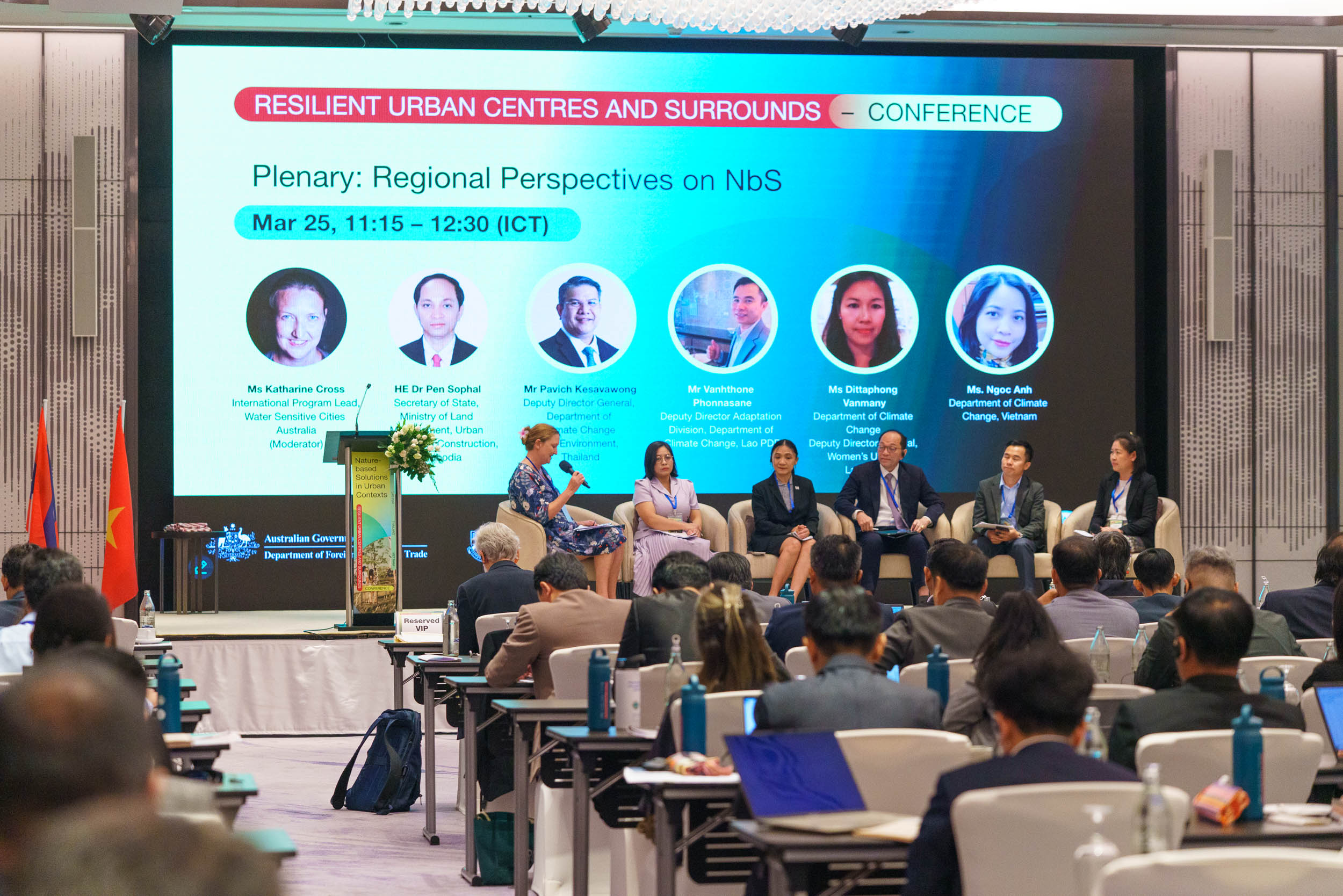Hanoi – From March 25 to 27, 2025, the Italian Agency for Development Cooperation (AICS) in Hanoi participated in the workshop “Nature-Based Solutions (NbS) in Urban Contexts,” held in Bangkok. The event was part of the Resilient Urban Centres and Surrounds (RUCaS) program, funded by the Australian government and implemented by the International Centre for Environmental Management (ICEM) and Water Sensitive Cities Australia (WSCA).
During the workshop, participants addressed key challenges related to rapid urban growth and managing climate change risks, particularly in Asian cities. The event emphasized the importance of Nature-based Solutions (NbS) such as green space restoration, natural water management, and the promotion of urban biodiversity to mitigate the impacts of global warming, enhance resilience, and support sustainable urban development.
Key discussion topics included the integration of gender, disability, and social inclusion into urban solutions; funding opportunities for NbS projects; and the policy frameworks needed to scale up these solutions in cities and provinces across the Mekong region. This region—covering Thailand, Vietnam, Cambodia, and Laos—is a priority area for the AICS Hanoi office, whose initiatives focus on water management and data collection to improve early warning systems for water-related natural disasters.
Delegates from the Lower Mekong countries shared their experiences in strengthening urban resilience through water management and addressing extreme weather events such as floods and droughts. The workshop also included field visits to Bangkok’s urban parks, including Centenary Park and Benjakitti Park, which demonstrate successful, real-world applications of NbS that enhance both environmental health and community well-being.
One major challenge identified was the need to overcome regulatory and political barriers that hinder the adoption of NbS. Participants emphasized the importance of updating technical regulations and involving the private sector to ensure the long-term success and scalability of these solutions.
Another crucial topic was funding NbS. Discussions highlighted the necessity of long-term planning that accounts not only for initial costs but also for economic benefits from mitigating climate change impacts. Experts introduced innovative methods for conducting thorough and sustainable impact assessments.
The workshop served as a valuable platform for promoting the integration of NbS into urban planning and strengthening collaboration among regional and international stakeholders. It underscored the critical role of nature-based solutions in achieving the Sustainable Development Goals (SDGs), particularly those related to sustainable cities (SDG 11), life on land (SDG 15), and climate action (SDG 13).
By participating in the event, the Italian Agency for Development Cooperation (AICS) in Hanoi strengthened its professional networks and explored new opportunities for collaboration, contributing to the creation of more sustainable and resilient cities.
